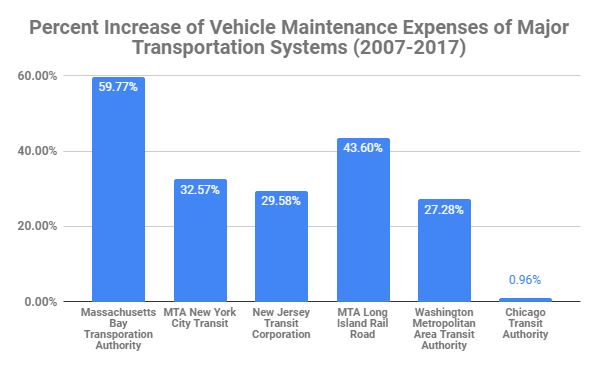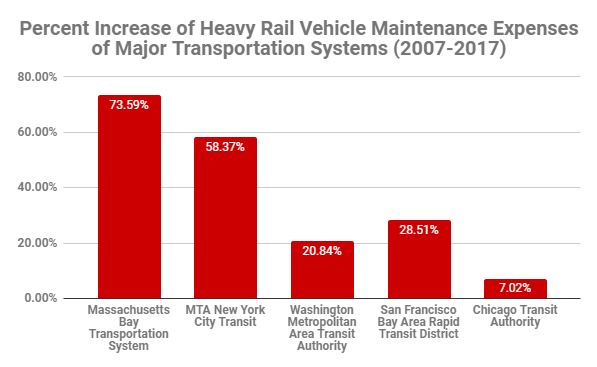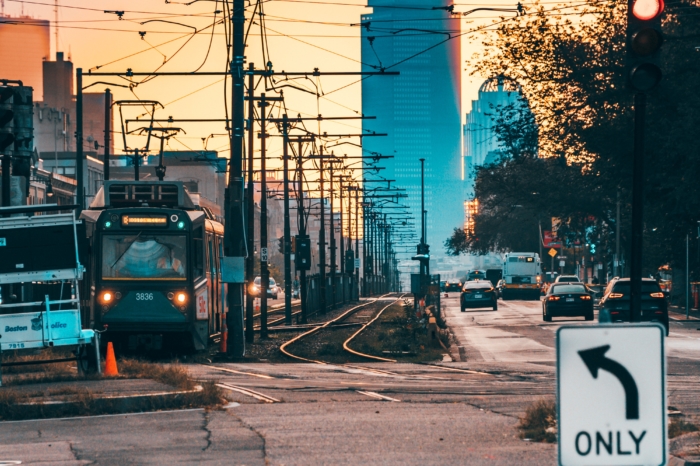Vehicle Maintenance Expenses Reveal Need for Updated T System
The MBTA is in the midst of a transformative $8 billion, five-year capital investment program. There is perhaps no better metric that represents the necessity of the MBTA’s initiative than vehicle maintenance expenses.
According to Pioneer Institute’s MBTAAnalysis.com, between 2007 and 2017 the T experienced a nearly 60 percent increase in overall vehicle maintenance expenses as spending grew from $211,925,186 in 2007 to $338,597,765 in 2017. While peer transportation systems also experienced higher vehicle maintenance costs, the MBTA far surpassed them. In fact, the T went from seventh to fourth among its peers in terms of vehicle maintenance expenses between 2007 and 2017.

One of the main reasons the MBTA experienced such a significant increase was the rise in vehicle maintenance expenses in its heavy rail system, which unsurprisingly is one of the main focuses of the MBTA’s 2019 capital plan. Between 2007 and 2017 the MBTA saw an incredible 73.6% increase in heavy rail vehicle maintenance expenses. Once again, this was far greater than many of its peer systems.

The T is an aging transportation network that needs more maintenance every year to keep the system running. However, there is reason for optimism given that the MBTA plans to spend $2.2 billion on new vehicles for the Red and Orange Lines, its main heavy rail lines.
As part of the Red Line Improvement Program, the MBTA plans to roll out an entirely new fleet of 252 Red Line vehicles (including 34 more cars added to the fleet), which will feature: more spacious interiors, wider doors, and more handrails, among other features. The budget for the project is $1.1 billion and it is scheduled to be completed by 2023.
Similarly, the T plans to replace its Orange Line fleet with 152 new vehicles (including 32 more cars added to the fleet). These cars will also feature more spacious interiors, wider doors, and more handrails. The budget for the project is also $1.1 billion and projected completion is by 2022.
It is clear that rising vehicle maintenance expenses is one of the big issues the MBTA faces. However, the T’s commitment to spend more than 27 percent of its $8 billion budget on heavy rail should help create a more efficient transportation system.
Harris Foulkes is a Roger Perry Transparency Intern at Pioneer Institute and a rising sophomore at Amherst College studying Economics.



